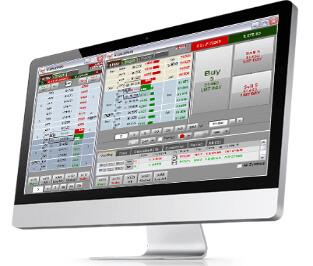
The role is similar to that of a broker, but traders are usually acting on their own behalf while brokers act on behalf of their clients. Our content is packed with the essential knowledge that’s needed to help you to become a successful trader. Also, we provide you with free options courses that teach you how to implement our trades as well.

Vending machines dispense certain types of goods without the need for a salesperson or an attendant. Consumers can insert their money into the machine, make their selection, and retrieve their item through a door or chute. Vending machines usually dispense beverages, snacks, and tobacco products. Fundamental analysis is a thorough process of assessing the intrinsic value of a security such… The Bullish Bears team focuses on keeping things as simple as possible in our online trading courses and chat rooms. We provide our members with courses of all different trading levels and topics.
To Scalp or Not to Scalp? Here is When to Use this Strategy!
Feel free to ask questions of other members of our trading community. We realize that everyone was once a new trader and needs help along the way on their trading journey and that’s what we’re here for. Our watch lists and alert signals are great for your trading education and learning experience.
- Mail order and teleshopping is all retail where consumers do not physically go to a location and products are sent to consumers homes.
- Hedge funds are a type of partnership between wealthy investors who pool in their money and place a fund manager in charge of the capital.
- As a result, the bottom line is that retail investors are able to take advantage of the small firm effect.
- Retail traders don’t have that kind of money money as their capital.
- One of the main advantages that institutional investors have over retail investors is the fees paid for trades.
However, in the commodities market, there’s no ownership and exchange of commodities. Professional traders and institutions often trade with millions of dollars. Retail traders don’t have that kind of money money as their capital. Investing in private placements requires long-term commitments, the ability to afford to lose the entire investment, and low liquidity needs.
Market Recession Fears Fade as Companies Keep Hiring
Another example of a proprietary trading firm is Susquehanna, which is a large Wall Street firm that focuses on quantitative and algorithmic trading. Franchises offer a great way for a company to expand its network using a third party as the owner/operator. In franchising, franchisors set up an agreement with a franchisee to conduct business under the franchise name, with the franchisor providing products, services, marketing support, and other help. There are many types of retail examples from clothing to food. The following are some examples of different retailers and their categories.
This means they need to put down only a small percentage of the trade size and can buy and sell currencies in seconds. Third, as a retail trader, you will take your profits https://forexhero.info/page/6/ 100%. Similarly, when you lose money, you will be accountable to these losses. On the other hand, most prop trading firms have a revenue-sharing agreement with the company.
How has retail investing changed over time
1 Shorting is a trading strategy that involves selling stock in anticipation that it can be bought back at a lower price. An investor profits by borrowing the stock from a broker at one price, selling it at the market price, and buying it back at a lower price to complete the borrowing transaction. Clearly, investors in SPY (an ETF tracking the S&P 500) haven’t experienced such highs, but neither have they suffered huge losses. During the one-year period6 that meme stocks recorded highs measured in the thousands of percent, and price drops from peaks by as much as 90%, SPY had a maximum return of 35% and a maximum drawdown of only 7.5%.
How to Become an Alpha Trader ? – Raging Bull – RagingBull
How to Become an Alpha Trader ? – Raging Bull.
Posted: Sun, 11 Jun 2023 00:47:43 GMT [source]
According to Schwab, the median age of a pre-2020 investor was 48-years old. Yet, 66% of new investors in 2020 were under the age of 45 and 22% were between the ages 18-29. Institutional investors are moving money in the millions, which can affect stock prices. FINRA defines institutional accounts as banks or investment companies, registered investment agents, or individuals with over $50 million in assets. StocksToTrade in no way warrants the solvency, financial condition, or investment advisability ofany of the securities mentioned in communications or websites. In addition,StocksToTrade accepts no liability whatsoever for any direct or consequential loss arising from any useof this information.
Use of strategies
Unlike institutional traders, retail traders may have limited capital to work with, but they can still be quite successful if they are able to employ strategies that give them an edge in the stock market. Institutional traders have the ability to invest in securities that generally are not available to retail traders, such as forwards and swaps. The complex nature and types of transactions typically discourage or prohibit individual traders. Also, institutional traders often are solicited for investments in IPOs. Several of the advantages institutional traders once enjoyed over retail investors have dissipated.
- Some of the big institutional investors, such as Citigroup, train and hire fresh graduates.
- An initial public offering (IPO) is a good example of this.
- It requires a large amount of capital to trade with and sometimes it could be easy to dig yourself into debt if the market goes against you.
- Retail trading has grown exponentially in the last few years.
Finally, retail traders should be aware of their own psychology and individual limitations. Trading can involve emotions such as fear and greed, so it is important to stay focused on the goal of long-term profitability. This is in contrast to larger institutional investors, who often have access to far greater capital and can take positions in the market worth hundreds of millions or more to buy and sell securities with.
Meme stock mania may have cooled, but retail investors are still a growing force to be reckoned with.
Though the most notable difference between retail and institutional investors is a difference in knowledge levels, there are several other key factors that differentiate retail investors from institutional investors. Chasing returns typically leads to extreme volatility and the potential for excessive losses. Furthermore, over the longer-term, high volatility investment strategies, like buying meme stocks, typically don’t benefit as much from the power of compounding returns as more disciplined approaches. Stories of some retail investors becoming millionaires overnight made spectacular headlines – and created a false impression of how most buyers of meme stocks probably fared. Most investors poured into the stocks after Reddit investors pushed them to eye-popping levels.
What is an example of retail?
Retail is the process of selling goods directly to the consumer, usually in a shop or online. Examples of retailers include supermarkets, department stores, specialty stores, convenience stores, and online stores.
Do retail traders make money?
Yes, retail traders can make money. However, it is not easy, and to make money as a retail trader you will need a strategy, a lot of time and some patience. In fact, becoming a consistent retail trader might take several years, but once you are there, it certainly is worth it!

